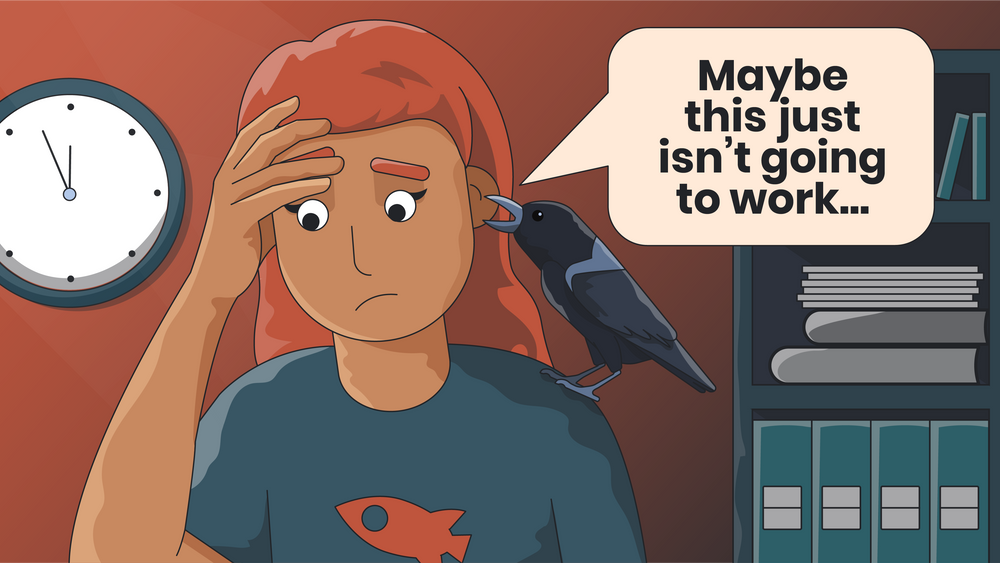Wil Schroter

What if our startup is only failing because we refuse to let it evolve?
There’s a moment in every Founder’s journey when nothing feels like it’s working. The product isn’t catching on. The sales aren’t converting. The market isn’t responding. And the creeping voice starts to whisper: “Maybe this just isn’t going to work.”
But what if it’s not the startup that’s failing — it's us?
What if we're the ones who are holding on too tightly to the original product or vision that we're preventing our startup from evolving into what it's meant to be?
The Myth of the Perfect Plan
Most of us fall in love with an idea before we’ve ever tested it. That’s how this whole thing starts. We get a flash of inspiration, we build the deck, and we convince ourselves (and maybe a few brave souls around us) that this is the thing. And maybe it is. But rarely in the form we started with.
The mistake we make is thinking that the first version of our idea has to be right. It doesn’t. In fact, it’s almost always wrong — and that’s part of the process. I've started 9 companies and worked on countless others and I have yet to have been even 50% right with the first iteration of an idea.
We treat “pivoting” like a dirty word, as if it means we were wrong or that we failed. But being wrong isn’t failure. It’s a signal. The moment we learn that our customers don’t want what we’re selling, or that our business model isn’t sustainable, or that our acquisition strategy is broken — that’s not failure. That’s feedback.
Our job isn’t to be right — it’s to respond to what we learn and evolve quickly.
Why Founders Struggle to Let Go
Letting go of the original plan doesn’t feel like evolution — it feels like grief. We spent months (or years) selling our team, our investors, and ourselves on this direction. The original idea has become a part of our identity. “This is what we do,” we tell people. Except... maybe it isn’t.
And if it isn’t, what does that mean about us? This is where things get personal. Founders don’t just build companies — we build versions of ourselves through them. So when a part of the business stops working, it doesn’t feel like a mechanical problem. It feels like a character flaw that strikes our ego.
We fear that changing direction will look like indecision. That our team will lose faith. That our investors will panic. That we’ll lose credibility. But the truth is, everyone in the startup ecosystem already knows this game is about adaptation. They’re not expecting us to be perfect — they’re expecting us to be agile.
Still, ego is a hell of a drug. We want to win our game. We want to prove that the plan we came up with at the start was genius, even when it's not.
What Letting It Evolve Really Looks Like
Letting our startup evolve isn’t about giving up control — it’s about redirecting it. It’s saying: “This thing we’re building is growing. And it’s trying to tell us what it wants to become. Are we listening?”
Sometimes the evolution is subtle — a change in messaging, a shift in pricing. Sometimes it’s radical — a new customer segment, a total product overhaul. Either way, it requires the same muscle: the ability to stop gripping the original version so tightly.
At Startups.com we stopped trying to be "right" a long time ago. We try a little bit of everything to see what works and what doesn't. We go into brainstorming with the understanding that "none of us knows what's right, we just know we need to discover."
This allows us to continually adapt without worrying about becoming stagnant. It starts with asking "What if what we're doing now is completely wrong? How far would we be willing to go to change? What's holding us back?" and then having the honesty to respond.
Adapt and Evolve
All of this maps back to us as Founders and how willing we are to accept change. If we can agree that the very nature of what we do is constant change, we'll quickly adapt and prosper. But if we hold on to what we've done in the past as something sacred, we'll stay blind to our own progression.
Everything is simply a matter of changing our perspective. And that change alone is evolution.
In Case You Missed It
Adding Staff Isn't a Sign Of Success, Revenue Is Increasing your staff does not necessarily mean growth, but it is a deliberate liability.
We Need a Culture of Accountability A Founder should be able to know how to instill accountability in their employees. The two main components of accountability are ownership and consequences — having these things can make a huge difference in a company’s overall success.
Let's Define Success By What We Don't Have To Do Anymore Why do we measure startup success by money? Is it the money we're truly talking about or the freedoms that money buys? If it's freedom, then how much of that freedom comes from money, and how much of it comes down to choice?
Find this article helpful?
This is just a small sample! Register to unlock our in-depth courses, hundreds of video courses, and a library of playbooks and articles to grow your startup fast. Let us Let us show you!
Submission confirms agreement to our Terms of Service and Privacy Policy.
Already a member? Login
No comments yet.
Start a Membership to join the discussion.
Already a member? Login
